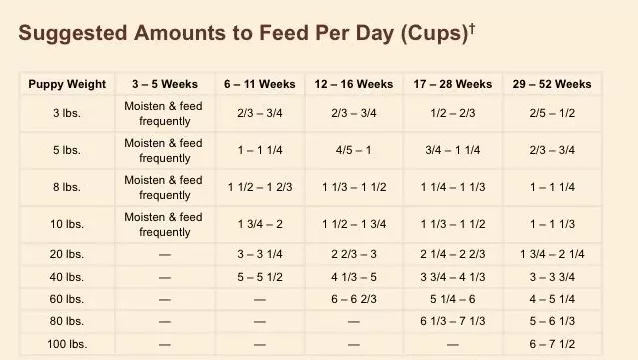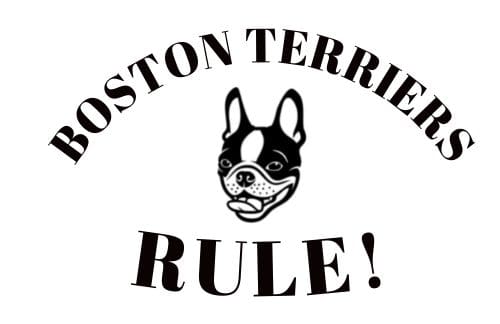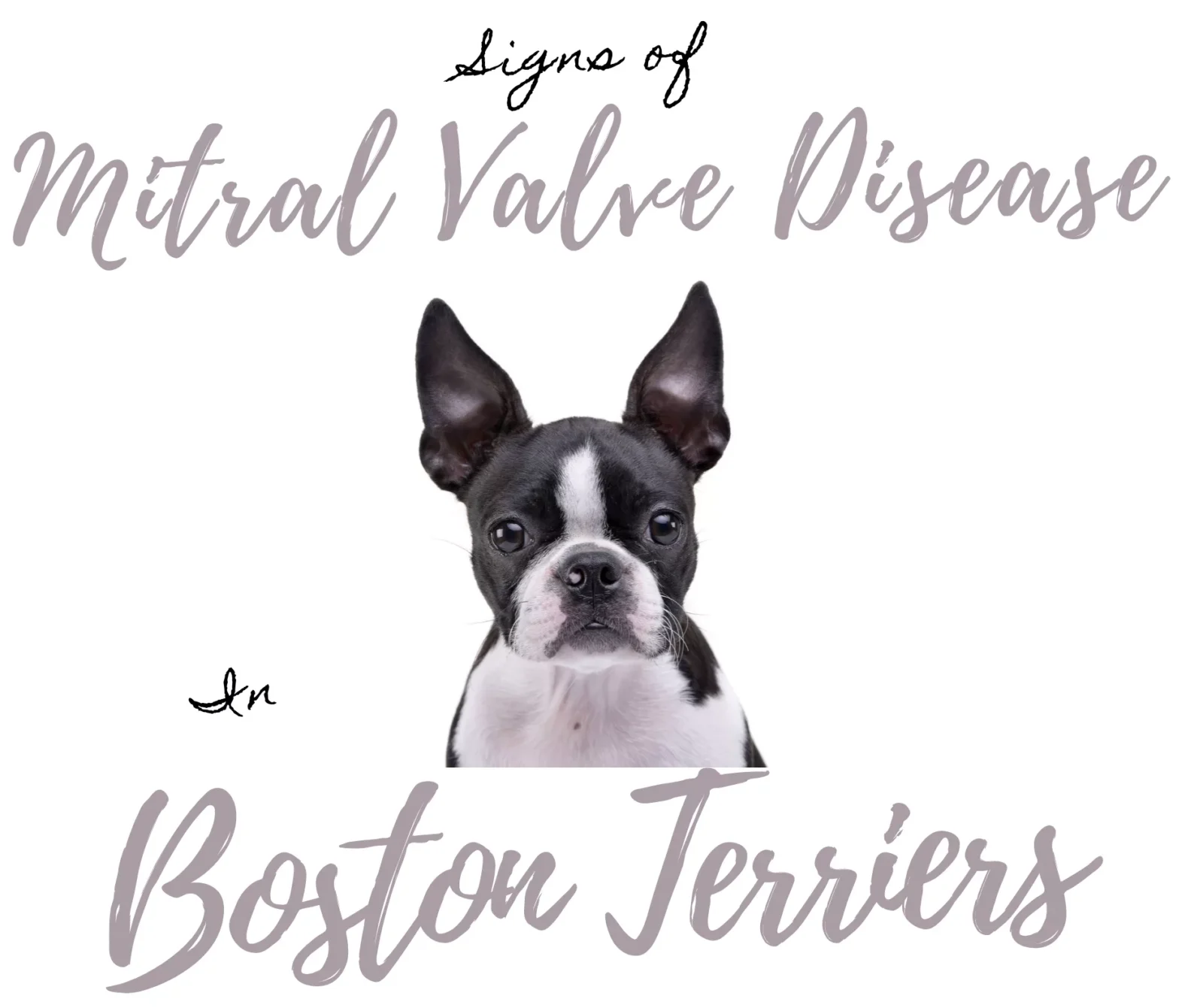Introduction
As devoted pet owners, we want the best for our Boston Terriers, and ensuring they receive proper nutrition is a crucial aspect of responsible pet care. Just like humans, dogs go through different life stages, each with its unique nutritional requirements. In this comprehensive guide, we will discuss the life stages of Boston Terriers, explore how their nutritional needs evolve, and address common questions about their diet. If your Boston Terrier suffers from food allergies, click here to read more.
Understanding the Life Stages of a Boston Terrier
Boston Terriers, like all dogs, go through several life stages, each marked by distinct developmental milestones. These stages typically include puppyhood, adolescence, adulthood, and senior years. Understanding these stages is fundamental to providing tailored nutrition that supports optimal growth, health, and longevity.
The Unique Demands of Puppyhood
Puppyhood, the initial stage in a Boston Terrier’s life, is characterized by rapid growth and development. Dogs are not considered full-grown until 1–2 years old (or 12–18 months on average). During this phase, puppies undergo crucial physical and behavioral changes. Their bones, muscles, and organs are rapidly developing, necessitating a diet rich in high-quality proteins and fats. These nutrients are fundamental for building a strong skeletal structure, lean muscle mass, and promoting overall vitality.
The role of DHA (docosahexaenoic acid), an omega-3 fatty acid, is particularly critical during puppyhood. DHA supports cognitive development, aiding in the formation of a sharp and agile mind. Look for puppy foods that contain DHA-rich ingredients, such as fish oil or salmon, for optimal brain function.
Boston Terrier puppies also have higher energy requirements than adult dogs, reflecting their boundless curiosity and playful nature. A diet with balanced macronutrients—proteins, fats, and carbohydrates—is essential to sustain their energy levels and fuel their active lifestyle.

The Adventures of Adolescence
As Boston Terriers transition into the adolescent stage, typically around six months to two years of age, they experience a period of increased activity and exploration. This is a critical time for bone development, making it important to maintain adequate levels of calcium and phosphorus in their diet. These minerals support the formation of strong bones and teeth, helping to prevent issues like hip dysplasia.
Adolescent dogs also undergo hormonal changes that may affect their metabolism and body composition. A diet that provides balanced nutrition, coupled with portion control, helps prevent excessive weight gain during this period, ensuring the development of a healthy, well-proportioned adult Boston Terrier.
The Prime of Adulthood
Adulthood is the stage where Boston Terriers reach their physical and mental maturity. During this period, their metabolism stabilizes, and their nutritional needs shift from growth-focused to maintenance. A well-balanced diet remains crucial to support their overall health and vitality.
Protein continues to play a pivotal role in an adult Boston Terrier’s diet, aiding in muscle maintenance and immune function. However, the proportion of protein may be slightly adjusted compared to puppyhood to prevent excess strain on organs like the kidneys.
It’s also vital to monitor caloric intake and adjust portions based on the individual dog’s activity level, size, and health status. Maintaining a healthy weight is essential to prevent obesity-related health issues, such as joint problems and diabetes.
Navigating the Golden Years
As Boston Terriers gracefully enter their senior years, typically around seven years and older, they encounter specific health challenges associated with aging. Joint issues, reduced metabolism, and potential organ function decline become more prevalent, necessitating adjustments in their diet.
Senior dog foods often contain reduced calorie content to prevent weight gain, as older dogs tend to be less active. Additionally, these formulations may include supplements like glucosamine and chondroitin to support joint health and antioxidants to combat age-related oxidative stress.
Protein remains important in the diet of senior Boston Terriers, but the source and quality become even more critical. Easily digestible proteins, such as those from poultry or fish, are often favored to support aging organs.

Tailoring Nutrition for Optimal Health
Understanding these life stages empowers pet owners to make informed decisions about their Boston Terrier’s diet. While commercial dog foods are formulated to meet general life stage requirements, individual variations exist. Regular check-ups with a veterinarian are crucial to monitor your dog’s overall health and make necessary dietary adjustments based on their unique needs.
In addition to age, other factors influence a Boston Terrier’s nutritional needs, including size, activity level, and health conditions. Larger or more active dogs may require diets with higher calorie content, while those with certain health issues might benefit from specialized formulations.
The Importance of Consultation and Observation
Ultimately, every Boston Terrier is unique, and what works for one may not suit another. Consulting with a veterinarian is the cornerstone of tailoring a nutrition plan to meet your dog’s specific requirements. Regular check-ups enable the vet to assess your Boston Terrier’s overall health, recommend appropriate dietary adjustments, and address any emerging health concerns promptly.
Observing your dog’s behavior, energy levels, and physical condition is equally crucial. If you notice changes in appetite, weight, coat quality, or behavior, these could be signs that adjustments are needed in their diet. Being attuned to these signals allows for proactive care and ensures that your Boston Terrier receives the best nutrition at every stage of their life.
A Lifelong Commitment to Well-Being
In essence, providing optimal nutrition for your Boston Terrier is a lifelong commitment. From the boundless energy of puppyhood to the graceful stride of their senior years, understanding and adapting to their evolving nutritional needs is key to ensuring a happy, healthy, and fulfilling life. With the right balance of love, attention, and a well-crafted diet, your Boston Terrier can thrive through each unique stage, enriching your lives with joy and companionship.

Dietary Requirements for Dogs
Regardless of their life stage, all dogs share basic dietary requirements. These include essential nutrients such as proteins, fats, carbohydrates, vitamins, and minerals. Proteins, derived from high-quality sources like meat, are crucial for muscle development and maintenance. Fats provide a concentrated source of energy, while carbohydrates offer a readily available energy source. Additionally, vitamins and minerals play key roles in various bodily functions, from immune system support to bone health.
The Cornerstones of Canine Nutrition
Proteins: Building Blocks of Health
Proteins are the fundamental building blocks of a dog’s body, and they play an indispensable role in their overall health. Derived from sources such as meat, fish, and poultry, proteins are rich in amino acids, which are essential for various bodily functions. These amino acids are the foundation for muscle development, repair, and maintenance.
During puppyhood, when growth is rapid, a Boston Terrier’s need for high-quality proteins is particularly pronounced. Adequate protein intake supports the development of lean muscle mass, ensuring that your furry companion grows into a strong and agile adult dog. In adulthood, proteins continue to be essential for maintaining muscle health and supporting the immune system, while in the senior years, they aid in preserving muscle mass and combating age-related muscle loss.
Fats: A Concentrated Source of Energy
Fats are a concentrated and efficient source of energy for dogs, providing more than twice the energy content of proteins and carbohydrates. While some may associate fats with weight gain, they are crucial for maintaining overall health. Fats play a vital role in supporting the health of a dog’s skin and coat, contributing to a glossy and lustrous appearance.
In addition to providing energy, fats are essential for the absorption of fat-soluble vitamins, such as vitamins A, D, E, and K. These vitamins are crucial for various bodily functions, including vision, bone health, and immune system function. In puppyhood, fats support the development of the nervous system and brain, emphasizing their importance during the formative stages of a Boston Terrier’s life.
Carbohydrates: Quick Energy Fuel
Carbohydrates are the primary source of quick energy for dogs, providing readily available fuel for their daily activities. Common sources of carbohydrates in dog food include grains, vegetables, and legumes. While dogs are primarily carnivores, they can benefit from a moderate amount of carbohydrates in their diet.
Carbohydrates help sustain energy levels, making them especially important for active and playful Boston Terrier puppies. During adulthood, a balanced carbohydrate intake aids in maintaining energy for daily activities, and in senior dogs, it can be adjusted to accommodate potential changes in metabolism and activity levels.
Vitamins: Catalysts for Vital Functions
Vitamins are essential organic compounds that facilitate various biochemical processes crucial for a dog’s health. Each vitamin has a specific role, contributing to functions such as immune system support, bone health, and the maintenance of vision.
For example, vitamin C acts as an antioxidant, helping combat free radicals in the body, while vitamin D is essential for calcium absorption, promoting strong bones and teeth. The inclusion of a diverse range of vitamins in a Boston Terrier’s diet is crucial at every life stage to ensure the proper functioning of various physiological processes.
Minerals: The Foundation of Structural Integrity
Minerals are inorganic elements that play a vital role in maintaining the structural integrity and function of a dog’s body. Calcium and phosphorus, for instance, are essential minerals for bone health, contributing to the development and maintenance of a strong skeletal system.
During puppyhood, a balance of minerals is crucial for proper bone formation and growth. In adulthood, these minerals continue to support bone health, and in the senior years, adjustments may be made to accommodate changes in bone density and potential issues such as arthritis.

The Balanced Diet: Key to Longevity
Achieving a balance of these essential nutrients is key to providing a Boston Terrier with a well-rounded and nutritionally complete diet. Commercial dog foods are formulated to meet these requirements, ensuring that your furry friend receives the necessary nutrients in the right proportions at each life stage.
As responsible pet owners, it’s important to read and understand the nutritional information on dog food labels. This allows you to make informed decisions about the products you choose for your Boston Terrier, taking into account their age, size, activity level, and any specific health considerations.
Tailoring Nutrition to Individual Needs
While the general guidelines provide a solid foundation, individual dogs may have unique nutritional needs. Consulting with a veterinarian is paramount to tailor your Boston Terrier’s diet to their specific requirements. Regular check-ups allow the vet to assess your dog’s overall health, recommend appropriate dietary adjustments, and address any emerging health concerns promptly.
In summary, understanding the significance of proteins, fats, carbohydrates, vitamins, and minerals in a Boston Terrier’s diet is the key to providing them with the foundation for a healthy and fulfilling life. A well-balanced diet tailored to their specific life stage ensures that your furry friend thrives, remaining a source of joy and companionship throughout their journey from playful puppyhood to graceful senior years.

The 25% Rule in Dog Food
The 25% rule is a guideline suggesting that at least 25% of a dog’s diet should come from protein sources. This rule underscores the importance of protein in a dog’s diet for muscle development, immune system function, and overall health. However, it’s essential to consider the overall balance of nutrients in your Boston Terrier’s diet, ensuring it meets the requirements for their specific life stage.
Protein: The Essential Building Block
The 25% rule, emphasizing that a significant portion of a dog’s diet should come from protein sources, underscores the vital role that this nutrient plays in maintaining your Boston Terrier’s health throughout their life. Proteins are made up of amino acids, which are the building blocks of tissues, muscles, and organs. The quality and quantity of protein in your dog’s diet significantly impact their overall well-being.
Muscle Development and Maintenance
Proteins are crucial during the growth phases of puppyhood when rapid muscle development occurs. A diet rich in high-quality proteins ensures that your Boston Terrier builds strong and lean muscles, providing the foundation for a healthy and active adulthood. In adult dogs, protein continues to be essential for muscle maintenance, ensuring they remain robust and agile throughout their lives.
Immune System Support
Beyond muscle health, proteins play a pivotal role in supporting the immune system. The immune system relies on various proteins, including antibodies, to defend the body against infections and diseases. Adequate protein intake is essential to strengthen your Boston Terrier’s immune response, helping them ward off illnesses and stay resilient in the face of environmental challenges.
Overall Health and Vitality
Proteins contribute to the overall health and vitality of your Boston Terrier. They are involved in numerous bodily functions, including the production of enzymes and hormones, as well as the repair and regeneration of cells. A balanced and protein-rich diet positively influences various physiological processes, ensuring your furry companion remains energetic, vibrant, and in optimal health.

Considering the Whole Nutrient Picture
While the 25% rule emphasizes the significance of protein, it’s crucial to recognize that a balanced diet requires careful consideration of all essential nutrients. Proteins, fats, carbohydrates, vitamins, and minerals work synergistically to meet the unique needs of your Boston Terrier at each life stage.
Fats: Energy and Nutrient Absorption
Fats are an integral part of a balanced diet, and they complement proteins by providing a concentrated source of energy. Additionally, fats aid in the absorption of fat-soluble vitamins, such as vitamins A, D, E, and K. The interplay between fats and proteins ensures that your Boston Terrier receives the energy required for their active lifestyle while also benefiting from essential vitamins.
Carbohydrates: Sustained Energy
Carbohydrates contribute to the overall energy supply, offering a readily available source of fuel for your Boston Terrier’s daily activities. While dogs are primarily carnivores, a moderate amount of carbohydrates in their diet can support sustained energy levels, particularly in active and playful puppies. Balancing proteins and carbohydrates ensures that your dog receives both quick and sustained energy for optimal performance.
Vitamins and Minerals: Holistic Health Support
Vitamins and minerals are essential for a myriad of physiological functions, including immune system support, bone health, and overall well-being. The synergy between proteins, vitamins, and minerals creates a comprehensive nutritional profile that addresses the diverse needs of your Boston Terrier’s body.

Adapting to Life Stages
Understanding the 25% rule becomes especially critical when considering the changing nutritional requirements of your Boston Terrier at different life stages. While the guideline provides a foundation, the actual protein needs may vary based on factors such as age, activity level, and health status.
Puppies: High Protein for Growth
During puppyhood, your Boston Terrier’s protein requirements are at their peak due to the rapid growth and development they experience. Puppy food formulations often contain elevated protein levels to accommodate these needs, ensuring proper muscle and tissue development.
Adults: Balanced Protein for Maintenance
As your Boston Terrier transitions into adulthood, their protein needs adjust to support muscle maintenance rather than rapid growth. A balanced diet with an appropriate protein level helps sustain their energy, muscle health, and overall vitality.
Seniors: Focus on Quality Protein
In the senior years, protein remains crucial, but considerations may shift toward the quality and digestibility of the protein sources. Easily digestible proteins, such as those from poultry or fish, can support aging organs and maintain muscle mass without placing undue strain on the kidneys.
A Holistic Approach to Canine Nutrition
The 25% rule acts as a valuable guideline, emphasizing the central role of proteins in your Boston Terrier’s diet. However, it’s essential to view this recommendation within the broader context of a balanced and well-rounded nutrition plan. By considering the interplay of proteins, fats, carbohydrates, vitamins, and minerals, you can provide your furry friend with a diet that caters to their unique needs at every stage of life. Regular consultations with your veterinarian ensure that your Boston Terrier receives individualized care, optimizing their health and longevity through a holistic approach to canine nutrition.

Is All Life Stages Dog Food Okay?
All life stages dog food is formulated to meet the nutritional needs of dogs from puppyhood to their senior years. While it can be a convenient choice for multi-dog households, it’s crucial to assess the specific needs of each dog. Some Boston Terriers may thrive on all life stages dog food, while others may benefit from stage-specific formulations tailored to their age, size, and health status.
The 4 Types of Dog Food
There are four main types of dog food: dry kibble, wet or canned food, semi-moist food, and raw or homemade diets. Each type has its advantages and considerations. Dry kibble is convenient and helps promote dental health, while wet food can be appealing to picky eaters and provides additional hydration. Semi-moist food is often seen as a treat, but should be given in moderation. Raw or homemade diets require careful planning to ensure they meet all nutritional needs.
Who Makes Life Stage Dog Food?
Numerous reputable pet food manufacturers produce life stage-specific dog food. Some well-known brands include Hill’s Science Diet, Royal Canin, Blue Buffalo, and Purina. When selecting a brand, consider factors such as the quality of ingredients, reputation, and, most importantly, adherence to the nutritional requirements for your Boston Terrier’s specific life stage as stated in this post.
The 3 Super Foods for Dogs
Certain foods are often considered “superfoods” for dogs due to their exceptional nutritional content. These include:
- Salmon: Rich in omega-3 fatty acids, salmon promotes a healthy coat, reduces inflammation, and supports cognitive function.
- Blueberries: Packed with antioxidants, blueberries contribute to overall immune system health and may have anti-inflammatory properties.
- Sweet Potatoes: A good source of vitamins, minerals, and fiber, sweet potatoes provide sustained energy and promote digestive health. Want to read more about Super Foods for your Boston Terrier? Click here.

The 3 Types of Feed for Dogs
There are three main types of feed for dogs:
- Commercial Dog Food: Convenient and nutritionally balanced, commercial dog food comes in various forms, including dry kibble, wet/canned food, and semi-moist food.
- Raw Diets: Some owners opt for raw or homemade diets, consisting of raw meat, bones, and vegetables. These diets require careful planning to ensure they meet all nutritional needs.
- Vet-Prescribed Diets: In certain cases, veterinarians may recommend specialized diets to address specific health concerns such as allergies, weight management, or medical conditions.
Conclusion
Nourishing your Boston Terrier at each life stage is a key factor in promoting their health, happiness, and longevity. By understanding their unique nutritional needs and selecting appropriate food options, you can provide your furry friend with the foundation for a vibrant and fulfilling life. Remember, consulting with your veterinarian is essential to tailor your Boston Terrier’s diet to their individual requirements and ensure they receive the best care possible at every stage of their journey.

https://cuddla.com/blog/boston-terrier-diet/
This post contains affiliate links. I earn from qualifying Amazon purchases.




